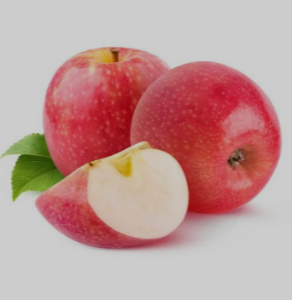The Botanical and Culinary Divide
From the botanical point of view, fruits are considered to be the mature ovaries of flowering plants, possessing seeds in their interior. Apples certainly fall into this category because they are the fleshy products of trees that belong to the species Malus domestica. Vegetables, in contrast, would roughly refer to any part of the plant consumed as food but which does not bear seeds, such as the roots, stems, and leaves. Therefore, from the strict botanical point of view, an apple can never be a vegetable, and the expression “vegetable apple” would be an oxymoron.
The Vegetable Apple: A Discussion of an Interesting Idea
The boundaries separating fruits from vegetables are quite contentious in both botany and culinary disciplines. An apple, by definition a fruit, shares little common ground with the designation “vegetable.” Yet when considering such a notion as a “vegetable apple,” we take the notion into greater levels of classification, metaphor, and creativity. The very idea of a vegetable apple is oxymoronic; however, this opens up an understanding of how food is defined and how such definitions are determined by our understandings.
The Botanical and Culinary Divide
From the botanical point of view, fruits are considered to be the mature ovaries of flowering plants, possessing seeds in their interior. Apples certainly fall into this category because they are the fleshy products of trees that belong to the species Malus domestica. Vegetables, in contrast, would roughly refer to any part of the plant consumed as food but which does not bear seeds, such as the roots, stems, and leaves. Therefore, from the strict botanical point of view, an apple can never be a vegetable, and the expression “vegetable apple” would be an oxymoron.
Apples are amongst the most consumed fruits in the world due to the huge beneficial effects that they exert on human health. Apples are indeed nutritionally accomplished foods and lend themselves to various ways of consumption; thus, their reputation as a “superfood.” Here are the advantages of apples for human health:
- Rich in Nutrients
Apples contain many of the basic vitamins and minerals that will help individuals maintain good health. An average-sized apple, about 100 grams, contains:
Vitamin C: It aids in the body’s immune function and skin health.
Potassium: This can help in maintaining blood pressure and takes care of your heart.
Dietary Fiber: Assists in digestion and promotes blood sugar levels; it might also be helpful for weight management.
Besides that, apples contain smaller amounts of other vital nutrients such as vitamin K, vitamin A, and some B vitamins that involve riboflavin, thiamin, and vitamin B6.
- High Fiber Content
Apple is considered to be one of the major sources of dietary fiber, especially the soluble fiber in the form of pectin. One medium-sized apple contains around 4 grams of fiber, about 17 percent of the adult daily recommended intake. Some of the top advantages of fiber are as follows:
Digestive health: It encourages the process of digestion by discouraging constipation and allowing for improved bowel movement.
Weight Management: High fiber gives the feeling of being full for a longer period of time, which inevitably minimizes the total number of calorie intakes.
Blood Sugar Level: Soluble fiber can help one slow down the absorption of sugar, prevent spikes in the level of blood glucose, hence particularly useful for people suffering from diabetes and pre-diabetes conditions.
3. Cardiovascular Wellness
There have been many results from several studies that were conducted on the issue that clearly show a relation between regular consumption of apples and improvement in heart health. The fiber in apples, especially the soluble fiber, helps reduce the levels of bad LDL cholesterol. Apples contain flavonoids, such as quercetin, featuring antioxidant and anti-inflammatory properties. The compounds help reduce heart disease risks by:
Lowering blood pressure.
Reducing the oxidation of cholesterol, a key factor in the development of heart disease.
Supporting healthier blood vessels: Improved circulation and prevention of plaque build-up within the vessels.
4. Weight Loss Support
Apples are low in calories but heavy in fiber and water; thus, they are very good snacks for people on diets. It was found that eating an apple before a meal reduces calorie intake in general because fiber and water contribute to giving the feeling of satiety. Besides, the energy density of apples is low, which allows one to have a good portion without consuming many calories.
5. Rich in Antioxidants
Apples are an excellent source of formidable antioxidants, which include ascorbic acid, quercetin, and chlorogenic acid. These compounds aid in combating oxidative stress that results in cell damage and the promotion of chronic diseases, which include cancers, cardiovascular diseases, and neurodegenerative conditions like Alzheimer’s disease.
However, quercetin-a flavonoid- is a compound mainly contained in apple skin that is thought to have anti-inflammatory and antioxidant effects. The risk of certain cancers, including lung, breast, and colon cancers, has been correlated with apples because of their antioxidant properties.
- Regulation of Blood Sugar
Apples have a low GI, which simply means they don’t cause a sudden increase in blood sugar. The fiber in apples delays the absorption process of sugars; thus, apples are one of the best fruits for diabetic patients. Besides, it has been suggested by various studies that the consumption of apples and other fruits rich in flavonoids and fiber could lower the possibility of developing type 2 diabetes. - Brain Health
Antioxidants in apples, particularly quercetin, have been linked to the protection of brain cells from oxidative damage associated with neurodegenerative conditions and aging, such as Alzheimer’s and Parkinson’s. Some animal studies have found apple intake to improve memory and cognitive performance.
Apple juice, especially the unfiltered type that includes pulp, has been found to enhance acetylcholine production. Acetylcholine is one of the neurotransmitters involved in preserving memory and learning. It may imply that apples play a part in safeguarding the maturing brain.
- Healthy Gut
The fiber and pectin in apples act as prebiotics, which are very essential to have a gut microbiome. Prebiotics facilitate the growth of the gut with beneficial bacteria that is so important to digestion, immune function, and even mood regulation. A healthy gut means a good immune system, proper digestion, and a reduction in chronic diseases like obesity and heart disease. - Hydration and Skin Health
Apples are refreshing and contain about 86% water, making them so. Proper hydration is crucial for skin health and organs. Vitamin C in apples also covers the production of collagen, which gives skin its elasticity to avoid wrinkles, among other features that denote aging. Additionally, antioxidants may protect the skin from environmental damage, including UV radiation and pollution. - Versatile and Convenient
Apples are easy fruits to adopt into a healthy regimen since they can be eaten raw, baked, or cooked into various dishes, from salads and sauces to pies and desserts. Apples also travel great without refrigeration, which makes them very handy for on-the-go snacking.




